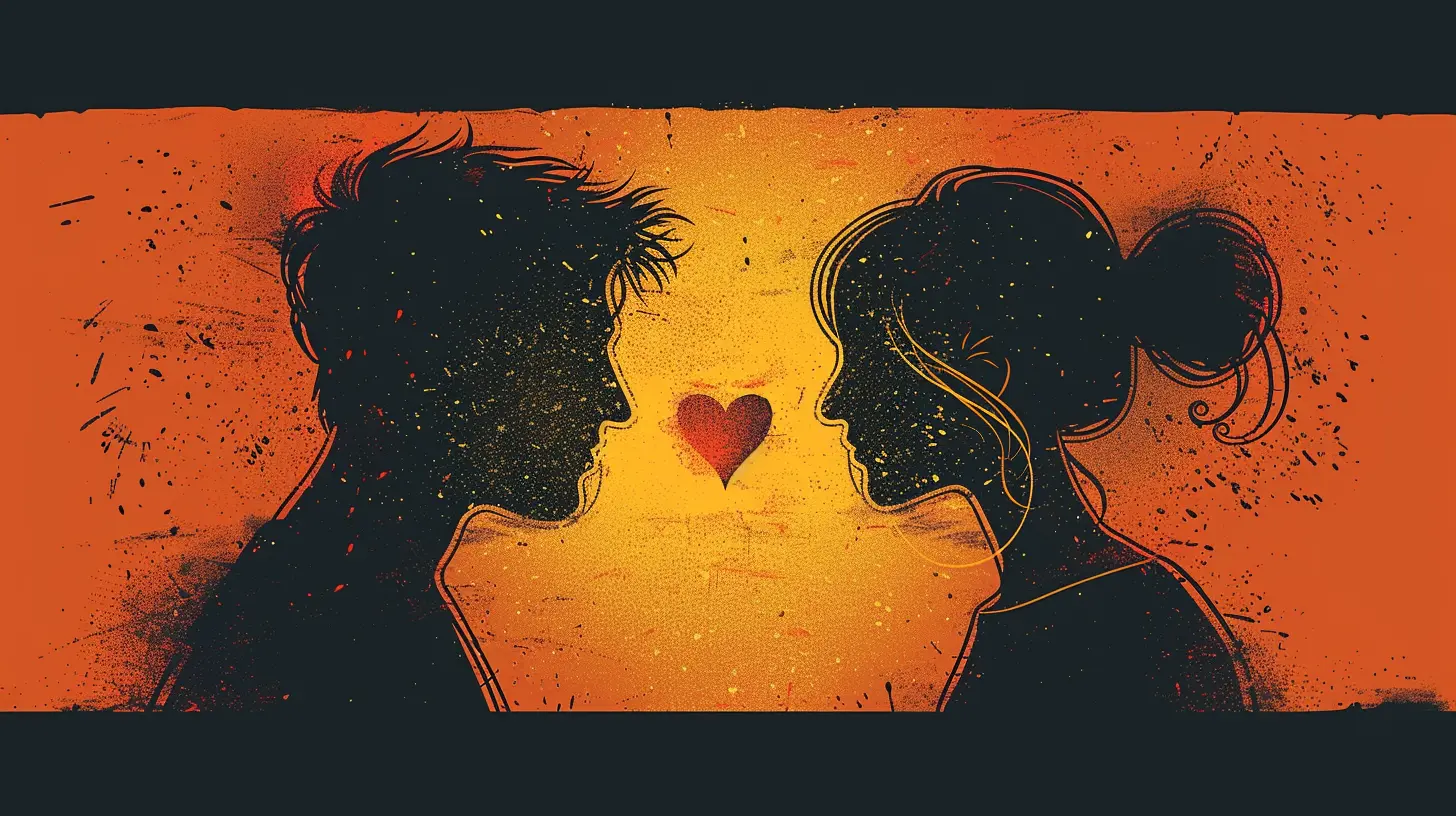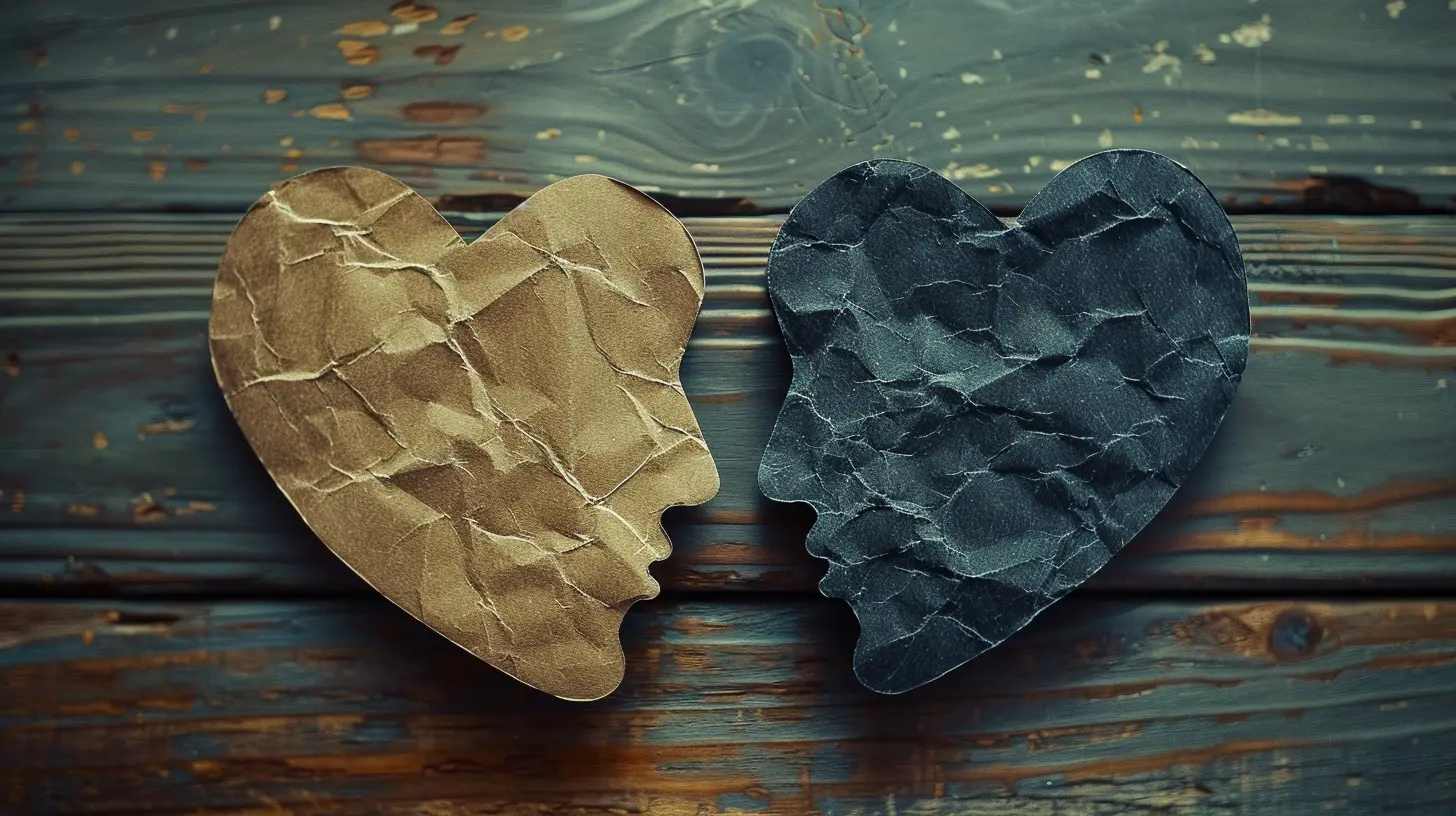11 April 2025
Love is a rollercoaster, isn’t it? One moment, you're head over heels, and the next, you're contemplating if your partner was sent straight from your nightmares. Relationships come with emotional highs and lows, and how we handle these emotions can make or break them. That's where emotional regulation comes in.
But what exactly does it mean to regulate emotions in a relationship? Why do some couples navigate storms with grace while others crumble under pressure? Let’s dive deep into the mysterious world of emotional regulation in romantic relationships. 
What Is Emotional Regulation?
Imagine your emotions as a boiling pot of water on the stove. Without a lid, things can spill over, making a mess. Emotional regulation is the lid that controls the intensity, preventing things from getting out of hand. It’s not about suppressing emotions but managing them in a way that keeps your relationship healthy.When frustrations spike, do you lash out or take a deep breath? When your partner upsets you, do you retaliate or communicate? These micro-decisions define the strength of your emotional regulation and, ultimately, the quality of your relationship. 
Why Emotional Regulation Matters in Relationships
Ever heard the saying, "Love is not enough?" Well, it’s true. Love alone doesn’t sustain a relationship—emotional intelligence does. Emotional regulation plays a crucial role in:1. Preventing Unnecessary Conflict
Think about it. Most fights don’t start because of big betrayals; they erupt over a snarky comment, a forgotten anniversary, or a misunderstood text. If both partners knew how to regulate emotions, minor annoyances wouldn’t escalate into full-blown arguments.2. Building a Secure Connection
When you’re emotionally stable, your partner feels safe with you. They don’t have to tiptoe around your moods, afraid of an explosion. A secure connection is built when both partners trust that emotions will be handled with maturity.3. Strengthening Communication
Ever tried reasoning with someone who’s seeing red? Impossible, right? Emotional regulation helps couples communicate effectively instead of reacting impulsively. And let’s be honest—good communication is the backbone of any lasting relationship.
The Dark Side of Poor Emotional Regulation
Without emotional regulation, relationships can feel like walking on eggshells. One wrong move, and everything shatters. Here’s what happens when emotions run wild:1. Frequent Explosive Arguments
When emotions aren’t managed, arguments become a battlefield where words are weapons. Every disagreement turns into a personal attack rather than a discussion.2. Emotional Withdrawal
On the flip side, some people shut down completely. Instead of expressing their disappointment or hurt, they retreat into silence, creating distance in the relationship. Over time, this emotional wall weakens intimacy.3. Resentment and Emotional Exhaustion
Unregulated emotions can lead to holding grudges. When every small issue builds up without resolution, resentment grows like a ticking time bomb, waiting to explode.
How to Master Emotional Regulation in Your Relationship
Now that we understand the importance of emotional regulation, let’s talk about how to improve it. No one is born with perfect emotional control—it’s a skill you develop over time.1. Pause Before Reacting
Ever sent a heated text you regretted later? The problem is impulsive reactions. The next time emotions run high, take a step back. Count to ten, go for a walk, or take deep breaths. This small pause can prevent major regrets.2. Understand Your Triggers
We all have emotional triggers—certain words, actions, or situations that push our buttons. Recognizing these triggers helps you prepare for emotional challenges instead of being blindsided.3. Label Your Emotions
Sounds simple, but identifying what you're feeling reduces emotional intensity. Instead of saying, "I’m furious," try "I feel frustrated because…" This shifts your mindset from reacting to reasoning.4. Practice Self-Soothing Techniques
When emotions escalate, calming yourself down is crucial. Whether it’s deep breathing, meditation, or listening to music, find techniques that help reset your emotions before engaging with your partner.5. Use "I" Statements in Conflicts
How you express emotions matters. Instead of blaming— "You always ignore me!" —try an “I” statement: "I feel unheard when we don’t talk about things." This reduces defensiveness and encourages understanding.6. Foster Emotional Awareness Together
Couples who navigate emotions together grow stronger. Have open conversations about emotional triggers, regulation strategies, and how you both can handle tough moments as a team.Emotional Regulation and Love Languages
Ever noticed how your emotions are tied to how you give and receive love? Emotional regulation and love languages go hand in hand. Understanding your partner’s love language can help you respond emotionally in a way they understand.- Words of Affirmation? They may feel more secure when reassured during conflicts.
- Physical Touch? A hug during an argument might calm them down faster than words.
- Acts of Service? Doing something thoughtful after a fight could mean more than an apology.
Tuning into these emotional cues strengthens connection and prevents misunderstandings.
Emotional Regulation in Long-Term Relationships
The honeymoon phase is easy—emotions are naturally high, and patience is abundant. But what about after years together? Emotional regulation becomes even more critical in long-term relationships.1. Avoid Emotional Complacency
With time, some partners stop filtering their words, assuming "they should know me by now." But familiarity doesn’t mean carelessness. Emotional regulation ensures that respect remains intact.2. Keep Emotional Intimacy Alive
It’s easy to fall into routine and forget emotional check-ins. Regularly discuss feelings, challenges, and emotional needs to keep the relationship emotionally fresh.3. Recognize Emotional Patterns
If the same arguments keep happening, it’s a sign of deeper emotional patterns. Addressing these recurring themes helps break toxic cycles and fosters emotional growth.Final Thoughts: The Power of Emotional Mastery
Romantic relationships are emotional playgrounds—full of joy, frustration, love, and challenges. But how you manage emotions determines whether your relationship thrives or crumbles.Emotional regulation isn’t about shutting down feelings; it’s about guiding them constructively. The more you master your emotions, the stronger and more fulfilling your relationship will be. After all, love is not just about passion; it’s about patience, understanding, and emotional wisdom.
So the next time emotions flare, ask yourself—are you controlling your emotions, or are they controlling you?





Yvonne O'Brien
Great insights on emotional regulation in relationships! I appreciate how you highlighted the importance of communication and self-awareness. These tools can truly enhance empathy and connection between partners. Thank you!
April 15, 2025 at 4:48 AM